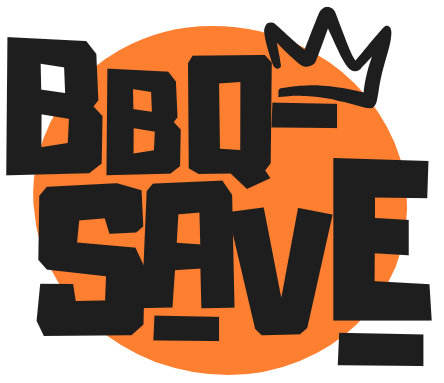Pellet grills have become a popular choice for BBQ enthusiasts, offering convenience, consistency, and versatility. With their unique wood pellet fuel system, these grills provide a smoky, authentic flavor while also allowing for precision temperature control. However, like any cooking appliance, pellet grills come with their own set of advantages and disadvantages. In this article, we’ll explore the top 8 pros and cons of pellet grills to help you decide if they’re the right fit for your grilling needs.
Pellet Grill Pros!
1. Convenient and Easy to Use ⏱️
Why It’s a Pro: Pellet grills are incredibly user-friendly, making them ideal for both beginners and seasoned pitmasters. With features like automated temperature control, you can set your desired cooking temperature, and the grill will maintain it without constant monitoring.
What to Expect: Simply load the hopper with pellets, set the temperature, and let the grill do the rest. The convenience of set-and-forget cooking allows you to focus on other tasks or relax while your food cooks to perfection.
2. Consistent Temperature Control 🌡️
Why It’s a Pro: Pellet grills offer precise temperature control, which is crucial for achieving perfect results. Unlike traditional charcoal or gas grills, which can experience fluctuating temperatures, pellet grills maintain a steady cooking environment.
What to Expect: Whether you’re slow-smoking a brisket or grilling steaks, you can rely on a pellet grill to hold a consistent temperature throughout the cooking process, ensuring even cooking and great results every time.
3. Versatility in Cooking Styles 🍖
Why It’s a Pro: Pellet grills are more than just smokers—they can be used for grilling, baking, roasting, and even searing. This versatility makes them a fantastic all-in-one option for anyone who loves experimenting with different cooking styles.
What to Expect: With a pellet grill, you can cook everything from low-and-slow smoked ribs to pizza and baked desserts. The wide range of cooking options allows you to get creative and try new things, making it a great choice for diverse meals.
4. Delicious Smoky Flavor 🌲
Why It’s a Pro: Pellet grills use wood pellets made from natural hardwood, which infuses your food with a smoky flavor that’s difficult to achieve with gas or electric grills. Different pellet types (such as hickory, mesquite, and applewood) offer unique flavor profiles, allowing you to customize the taste of your dishes.
What to Expect: With a pellet grill, you get the rich, authentic smoky taste of wood-fired cooking without the need for an open flame or constant wood supply. The wood pellets burn cleanly, ensuring a smoky flavor that’s consistent and pleasant.
5. Ease of Maintenance 🧽
Why It’s a Pro: Pellet grills are generally easy to clean and maintain compared to other types of grills. Many models feature a self-cleaning ash system that automatically removes ash from the firepot, reducing the need for regular manual cleaning.
What to Expect: After cooking, you only need to empty the ash, clean the grease trap, and occasionally wipe down the cooking surface. With fewer moving parts and a simple design, pellet grills are low-maintenance, making them great for users who prefer less hassle.
6. Cost-Effective Over Time 💸
Why It’s a Pro: While the initial cost of a pellet grill can be higher than traditional charcoal or gas grills, they are often more cost-effective in the long run. The wood pellets themselves are relatively affordable, and because of the precise temperature control, pellet grills use less fuel than you might expect.
What to Expect: Pellet grills are efficient in terms of fuel consumption, and because they maintain consistent heat, they tend to use less wood compared to other smoking methods, saving you money over time.
7. Built-In Wi-Fi and Smart Technology 📱
Why It’s a Pro: Many modern pellet grills come with built-in Wi-Fi capabilities, allowing you to control your grill remotely via a smartphone app. This means you can monitor cooking progress, adjust temperatures, and even receive notifications while you’re away from the grill.
What to Expect: Whether you’re cooking dinner or smoking meat for hours, Wi-Fi-enabled pellet grills give you the convenience of controlling your cooking remotely, making them a great choice for busy individuals or those who enjoy a tech-savvy grilling experience.
8. Great for Year-Round Cooking 🌦️
Why It’s a Pro: Pellet grills perform well in all types of weather, unlike charcoal or gas grills that can be challenging to use in cold or windy conditions. The consistent temperature control allows pellet grills to be used year-round, even in colder climates.
What to Expect: With a pellet grill, you can continue cooking outdoors in the winter, knowing that it will maintain its set temperature. Whether it’s grilling steaks in the summer or smoking meats in the winter, a pellet grill is designed to work efficiently no matter the season.
Pellet Grill Cons!
1. Higher Initial Cost 💰
Why It’s a Con: One of the biggest downsides of pellet grills is their initial cost. Compared to traditional gas or charcoal grills, pellet grills can be significantly more expensive.
What to Expect: The higher price tag reflects the advanced technology, precise temperature control, and versatility of these grills. While they offer great value over time, the upfront cost may be a barrier for those on a tight budget.
2. Need for Electricity ⚡
Why It’s a Con: Pellet grills require electricity to operate the auger (which feeds pellets into the fire), fan, and temperature control system. This means they’re not ideal for places without reliable power sources or for those who prefer grilling in more remote, off-grid locations.
What to Expect: If you’re planning to use your grill in an area without electrical access, you’ll need to have a power source nearby, which can be inconvenient in some situations.
3. Pellet Availability and Cost 📦
Why It’s a Con: Pellet grills require wood pellets for fuel, and while they’re generally affordable, finding high-quality pellets in your area can sometimes be a challenge. Additionally, pellet prices can fluctuate depending on demand and availability.
What to Expect: If you live in an area with limited access to wood pellets, you may have to order them online, which could lead to higher shipping costs. Additionally, some premium wood pellets can be pricier than other types of fuel.
4. Slower to Heat Up 🔥
Why It’s a Con: Pellet grills tend to take longer to heat up compared to gas grills, which can be frustrating if you’re in a hurry to get cooking. The process of lighting and reaching your desired cooking temperature may take anywhere from 10 to 20 minutes.
What to Expect: If you’re accustomed to the quick start-up times of a gas grill, the slower heat-up time of a pellet grill might take some getting used to. This can be an inconvenience if you’re looking to grill quickly or need a fast start to cook meals.
5. Requires Regular Cleaning 🧼
Why It’s a Con: Pellet grills do require regular cleaning, especially the ash, grease tray, and cooking grates. If not cleaned regularly, buildup can affect the grill’s performance and the flavor of your food.
What to Expect: The cleaning process is relatively simple but can be time-consuming. You’ll need to make sure the grill is cleaned after each use to maintain its efficiency and ensure long-lasting performance.
6. Limited Searing Capability 🔥
Why It’s a Con: While pellet grills are great for smoking, roasting, and baking, they typically don’t reach the high temperatures needed for searing meat like a gas or charcoal grill can.
What to Expect: If you’re looking to achieve that signature crust on your steaks or burgers, a pellet grill may not be the best choice. Some pellet grills have searing attachments, but they still don’t provide the same high-heat searing ability as other types of grills.
7. Inconsistent Smoke Flavor 💨
Why It’s a Con: While pellet grills offer a smoky flavor, the intensity can be inconsistent depending on the pellet type and cooking time. Some users report that the smoke flavor is milder compared to traditional wood smokers.
What to Expect: If you’re a purist who values strong, robust wood-smoked flavor, you might find the milder smoke from a pellet grill less satisfying. The flavor intensity can also vary depending on the brand and quality of the pellets.
8. Vulnerability to Weather Conditions 🌧️
Why It’s a Con: Pellet grills can be more vulnerable to certain weather conditions, particularly in extreme cold or wet environments. Cold weather can cause pellets to burn inefficiently, and rain can disrupt the electrical components.
What to Expect: If you live in a region with frequent rain, snow, or cold temperatures, you may need to take extra precautions, such as storing your grill in a sheltered area or using a weatherproof cover to protect it.
Pellet grills are an excellent choice for many BBQ enthusiasts, offering convenience, versatility, and consistency in cooking. However, they do come with their own set of challenges, including a higher upfront cost, the need for electricity, and some limitations when compared to traditional grills. By weighing the pros and cons carefully, you can make an informed decision on whether a pellet grill is the right fit for your grilling needs. Whether you value the flavor, convenience, or versatility of pellet grilling, understanding these factors will help you get the most out of your investment.



